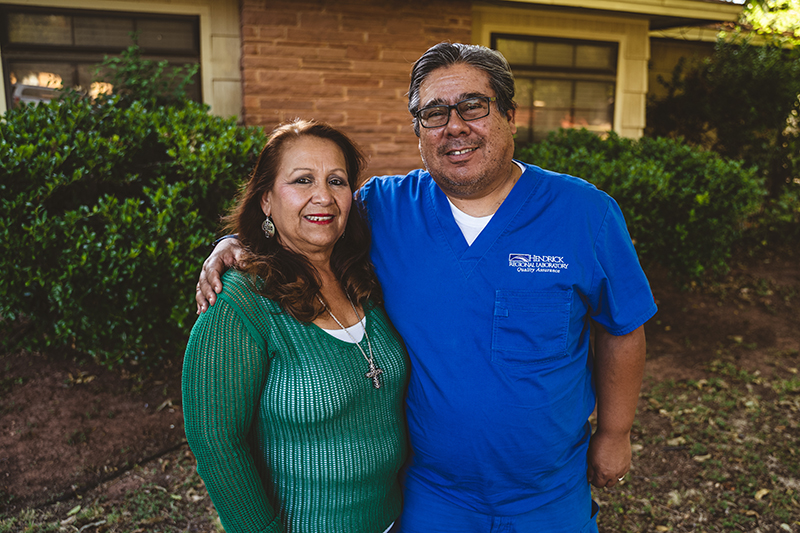Love Is All You Need
January 2020 · Foster Family Features
Self-professed Beatles superfan José Ramirez might be excused for believing that “all you need is love.” After all, he’s seen what it can accomplish in the lives of the young people he and Margarita have fostered. Unlike the song, though, he doesn’t believe “love is all you need.” José says teens in care also need structure, discipline, and boundaries. It’s essential to their safety and security.
José and Margarita started fostering about six years ago after looking around at their large empty nest and lamenting all the unused space they now had. Their two daughters had grown and left home, and it seemed a shame to let their rooms remain unused. A friend told them about foster parenting, so they decided to check it out.
“We enjoy helping people,” said José. “For us, that’s what it’s all about. But it’s not always easy, never a piece of cake. We’ve had our challenges; that’s normal with teenagers. It’s a day by day process.”
So far, they’ve fostered five teens through long-term placement. They currently have a brother and sister, ages 14 and 16. That they only foster teens seems ironic, considering that Margarita was initially hesitant to become a foster parent. Children in foster care scared her, especially adolescents in foster care.
“I was afraid they wouldn’t like us or wouldn’t want to stay with us,” said Margarita. “I worried they’d be angry and act out, but José said, ‘Let’s just try it,’ and I’m glad we did. As long as you have faith that everything will work out and you’re doing your best to help these children, you’ll do fine. As long as your heart is right, you’ll be okay. Besides, that fear is unnecessary because these are not bad kids.”
Actually, since they both still work, there is an advantage to fostering teens.
“They can take care of themselves while we’re at work,” said Margarita. “That’s why we don’t foster babies or elementary school-aged children. For working people like us, teenagers are easier to care for.”

That’s not to say teens don’t pose a challenge. For many youths in foster care, such structure is alien and new. They’ve never lived by rules, so it can take a while to adjust. Add typical teenaged temperaments to the mix, and José and Margarita have to get creative. José says communication is key; kids need to know that there are always consequences to both good and bad behavior. Yet, discipline must always be non-corporal, age-appropriate, and just. Give kids time to adjust to structure, and they tend to flourish in it.
It helps, too, to know someone has their back.
“Tiajuana (Williams) from Saint Francis is both awesome and fantastic,” said José. “She’s a good support for us. If we ever have a question or a problem, she’s always there with an answer or suggestion.”
They consider Tiajuana a blessing, along with the teens they foster and foster parenting itself.
“There are good kids in foster care, and it makes us happy to help them,” said José. “Something happened at their home, and they need help until things can get straightened out. They want to live a normal life, just like you and me.”
“You have to have a heart for this,” added Margarita. “If it’s your calling, you can do a lot of good. There are lots of kids that need homes, a safe place to stay.”
José and Margarita believe it takes discipline, boundaries, and structure to provide that safety for kids in their care. Yet, love for those same kids is what motivates and inspires them keep them safe. Love is the starting point of their service. So, maybe the Beatles were right after all – love is all you need.

